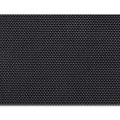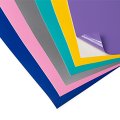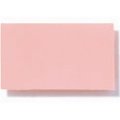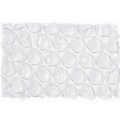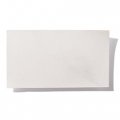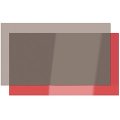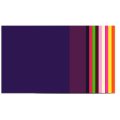Latex sheets
Information about latex film
Natural rubber is the material from which latex is made. Well known as the basis for all types of clothing (think of the tried and tested contraceptive), latex rubber is of course also suitable for making accessories or for temporary decorations of all kinds.
Application As a natural material with almost no additives, latex is on the one hand a very pleasant material, but on the other hand not as durable as synthetic and mostly vulcanized rubbers. It reacts sensitively to irradiation with UV light (sun) and to contact with cleaning agents and oils. Caution also when processing: sweaty hands are visible on the sensitive surface! Do not use a detergent to wash latex, only warm water should be used. Light dusting with talcum powder prevents sticking together. Latex must be stored away from light (especially translucent and light-coloured latex varieties turn yellow and become brittle) and must not be brought into contact with copper or copper alloys, oils, greases or cleaning agents.
Processing: Latex can be cut best with a Rotarycutter. The material can be sewn well with the sewing machine, but you should put newspaper or tissue paper between the latex and the presser foot so that the foot does not stop on the material. The paper is then carefully torn off again. However, the seam should still be glued between the two latex layers, as the thin rubber will easily tear at this point.
Rubber adhesive, which is used for patching bicycle tubes (e.g. TIP TOP), is particularly suitable for gluing. Cyanoacrylate adhesive (e.g. superglue) achieves quite good bondings, Pattex bonds moderately well. Before gluing, the latex must be cleaned with warm water, as no adhesive adheres to the silicone coating used in the production process.
